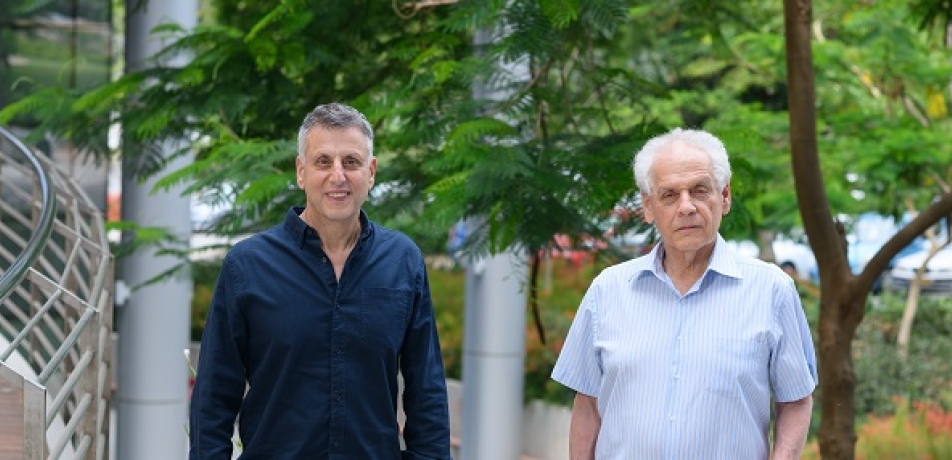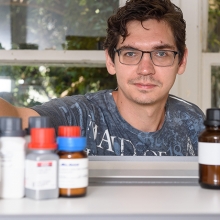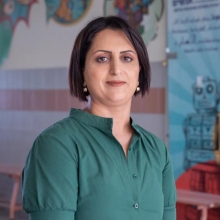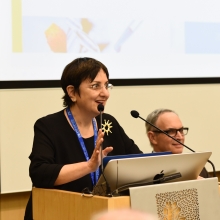EMET Prize to Reshef Tenne, Dan Tawfik
Scientists’ discoveries have application in aerospace, medical, and chemical industries
Briefs

L to R: Prof. Dan Tawfik, Prof. Reshef Tenne
Two Weizmann Institute scientists have received the prestigious EMET Prize: Prof. Emeritus Reshef Tenne in the exact sciences category, and Prof. Dan Tawfik in the life sciences category. The prize is awarded by the A.M.N. Foundation.
Prof. Tenne, from the Department of Materials and Interfaces, discovered novel inorganic nanomaterials nicknamed inorganic fullerene-like structures (IF) with a quasi spherical shape and inorganic nanotubes (INT). Following his discovery of these structures in 1992, he became a pioneer and world leader in this field. In recent years, he developed new synthetic strategies to obtain nanotubes from numerous unique materials called ternary and quaternary compounds.
His discoveries have been a boon for industry. The round, inert nanoparticles of tungsten disulfide, work like nano ball-bearings, and have since become a product used in industrial machine lubrication. The nanotubes he discovered were shown to reinforce polymers and show large potential in a range of applications in medical technologies, like prostheses, cardiovascular and urological catheters, and in aerospace, sport technologies, and tissue engineering. His research led to the establishment of several companies, among them Nanotech Industrial Solutions, which holds an exclusive license for his nanotube structures.
“The driving force for my research is infinite curiosity to discover new frontiers” says Prof. Tenne.
Back to the future
Prof. Tawfik’s broad-sweeping research quests involve not only tracing back the way natural enzymes have evolved, but also asking how this knowledge can lead to the creation of “designer” enzymes for a variety of applications. His research has helped open up the growing field of directed evolution of proteins.
A member of the Department of Biomolecular Sciences, Prof. Tawfik is an expert on enzymes—nature’s remarkable catalysts. In experimental work that lies at the interface of chemistry and biology, he has developed a range of experimental systems that can reproduce protein evolution in the laboratory and in real time, including artificial cell-like droplets.
His research moto echoes Darwin’s famous saying, “…from so a simple beginning, endless forms most beautiful and most wonderful have been, and are being, evolved”. Besides shedding light on evolutionary processes, including how the very first proteins emerged about 3.8 billion years ago, his research is leading to new, tailor-made proteins with potential uses such as degrading toxic chemicals.
“What we understand, we can make,” says Prof. Tawfik. Other potential applications of his laboratory evolved proteins include the detoxification of man-made chemicals including nerve agent.
Prof. Emeritus Reshef Tenne is supported by the Yotam Project. Prof. Dan Tawfik is the incumbent of the Nella and Leon Benoziyo Professorial Chair.








